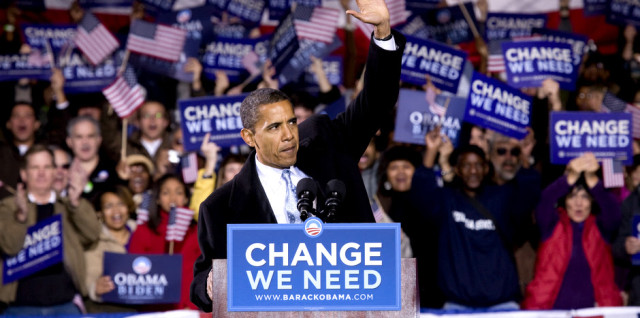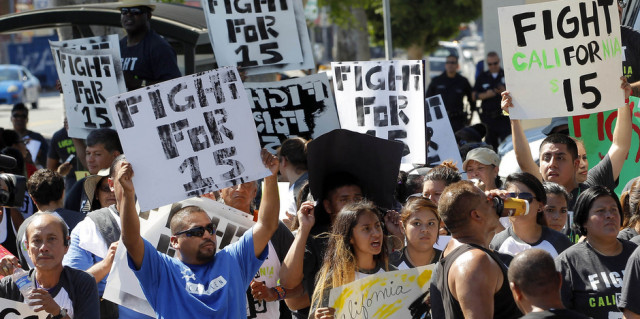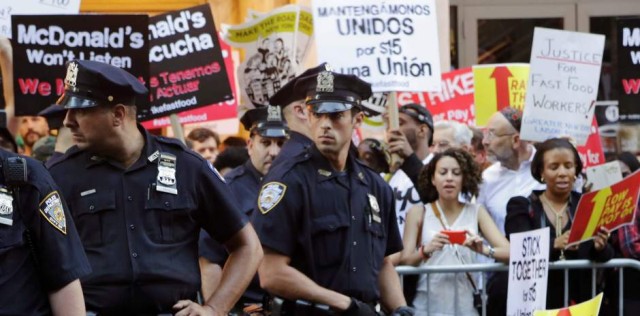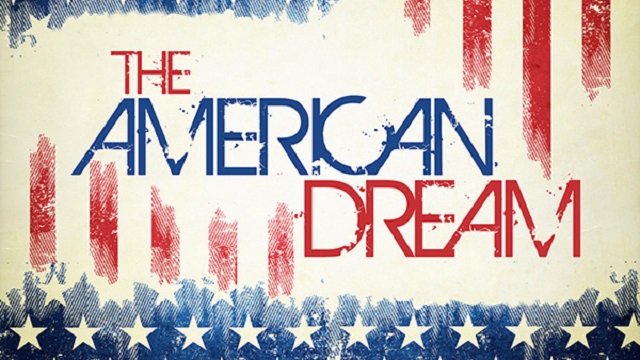As civilized human beings, we are the inheritors, neither of an inquiry about ourselves and the world, nor of an accumulating body of information, but of a conversation, begun in the primeval forests and extended and made more articulate in the course of centuries. It is a conversation which goes on both in public and within each of ourselves. – Michael Oakeshott
What do academics see when they stare down upon the rest of America? Columbia’s Mark Lilla, at least, thinks he sees a “libertarian age.”
Writing in the New Republic, Lilla wraps his punchline in a shroud of obscurity, concluding,
The libertarian age is an illegible age. It has given birth to a new kind of hubris unlike that of the old master thinkers.
Our hubris is to think that we no longer have to think hard or pay attention or look for connections, that all we have to do is stick to our “democratic values” and economic models and faith in the individual and all will be well.
Having witnessed unpleasant scenes of intellectual drunkenness, we have become self-satisfied abstainers removed from history and unprepared for the challenges it is already bringing.
Lilla suggests the old master thinkers knew better how to understand the great arc of history because they had an ideology. But we don’t.
“Our libertarianism operates differently,” writes Lilla, “it is supremely dogmatic, and like every dogma it sanctions ignorance about the world, and therefore blinds adherents to its effects in that world. It begins with basic liberal principles — the sanctity of the individual, the priority of freedom, distrust of public authority, tolerance — and advances no further.”
Now that’s strange. The normal line is that libertarians are too ideological. Of course it’s true that a form of libertarianism that advances no further than a few platitudes or axioms would be an anemic sort of libertarianism.
But the point of libertarianism is not to fill our lives with specific virtues and values; rather, it is to provide a superstructure for various moral communities to coexist peacefully.
A Libertarian Age?
Even if one agrees a libertarian age is upon us, the cock has only just crowed. According to Lilla, though, because this age is not rooted in an ideology, it is marked by an errant attitude that somehow washed over us after the fall of communism in place of all ideology. If that’s the case, why call it “libertarian”?
To describe this age as Lilla does is to fundamentally misunderstand the wordlibertarian, or at least to use it haphazardly as a convenient, if denigrating label. To misunderstand the word is also a failure to appreciate a living tradition that is only now beginning to flower in the digital era.
When I think about that rich, expanding tradition, I think of economic historian Deirdre McCloskey. She offers the kinds of connections Lilla might like to see, especially in her excellent The Bourgeois Virtues. I doubt, however, those connections are the ones Lilla would like us to draw.
Here’s McCloskey choosing not to abstain:
The master narrative of High Liberalism [modern, left-liberalism] is mistaken factually.
Externalities do not imply that a government can do better. Publicity does better than inspectors in restraining the alleged desire of businesspeople to poison their customers. Efficiency is not the chief merit of a market economy: innovation is. Rules arose in merchant courts and Quakers fixed prices long before governments started enforcing them.
I know such replies will be met with indignation. But think it possible you may be mistaken, and that merely because an historical or economic premise is embedded in front page stories in the New York Times [or The New Republic] does not make them sound as social science.
It seems to me that a political philosophy based on fairy tales about what happened in history or what humans are like is going to be less than useless. It is going to be mischievous.
It’s true. There is no ideology here, just the sum of facts.
A Narrative, an Ideology
But Lilla thinks he has a different and better narrative about history — one that is not so devoid of ideology. It’s difficult to say what that narrative is, because Lilla is so vague in his critique — so much so that one wonders if he’s simply dissatisfied with the want of ideology and hopes to put a sticker on it. He reaches for a sticker. “Libertarian” will do.
The closest we get to any proposed counternarrative comes in who Lilla would award for attempting to fix the Middle East: “The next Nobel Peace Prize should not go to a human rights activist or an NGO founder. It should go to the thinker or leader who develops a model of constitutional theocracy giving Muslim countries a coherent way of recognizing yet limiting the authority of religious law and making it compatible with good governance.”
Notice he did not say a working model, nor a successfully implemented model. Just a model. Despite the nod to a people’s history and culture, he wants to see more intellectuals with models.
Political philosopher Michael Oakeshott once said, “Like Midas, the Rationalist is always in the unfortunate position of not being able to touch anything, without transforming it into an abstraction; he can never get a square meal of experience.”
But that’s just the problem with models and planning, says Deirdre McCloskey:
How do I know that my narrative is better than yours? The experiments of the 20th century told me so. It would have been hard to know the wisdom of Friedrich Hayek or Milton Friedman or Matt Ridley or Deirdre McCloskey in August of 1914, before the experiments in large government were well begun.
But anyone who after the 20th century still thinks that thoroughgoing socialism, nationalism, imperialism, mobilization, central planning, regulation, zoning, price controls, tax policy, labor unions, business cartels, government spending, intrusive policing, adventurism in foreign policy, faith in entangling religion and politics, or most of the other thoroughgoing 19th-century proposals for governmental action are still neat, harmless ideas for improving our lives is not paying attention.
Or perhaps they’re failing to “look for connections.”
No Good Reason
But there’s more. Lilla writes:
Libertarianism’s dogmatic simplicity explains why people who otherwise share little can subscribe to it: small-government fundamentalists on the American right, anarchists on the European and Latin American left, democratization prophets, civil liberties absolutists, human rights crusaders, neoliberal growth evangelists, rogue hackers, gun fanatics, porn manufacturers, and Chicago School economists the world over.
The dogma that unites them is implicit and does not require explication; it is a mentality, a mood, a presumption — what used to be called, non-pejoratively, a prejudice.
Got that? A mood. A dogma. A prejudice.
Let’s assume that we all agree about what the words dogma and prejudice mean. A dogma is not an ideology because it offers no reasons for anyone’s commitments. A prejudice is simply a disposition to believe something, perhaps also for no good reason at all.
That means libertarians have no good reason to be suspicious of power (such as police power excesses in Baltimore or Ferguson), no good reason to commit to smaller government (like bank bailouts or military adventurism), no reason to believe that open trade helps the world develop (despite all the evidence), no reason to protect expression, no reason to acknowledge the social benefits of emergent order, and no reason to create a digital currency (Argentine inflation is fine).
Voluntary cooperation or the free flow of ideas, people, capital, and goods? These are all just byproducts of our dumb post-ideological age. Why? Because, according to Lilla, libertarianism is just a dogma.
To understand history through the lens of people with power screwing things up more than helping is not an abstention, and it is not illegible. The relationship between people with coercive power and the rest is our historical-ideological filter, and that’s just for starters.
Rational Irrationality
Lilla’s mischief does not just extend to history. That failure to understand libertarianism hangs about his thesis, too.
For example, a libertarian does not admire “democratic values,” as Lilla suggests. These are the values of those who would trade in the one-headed master with the many-headed one. Libertarians don’t find much value in masters at all.
Majoritarian elections don’t harness the wisdom of crowds, as Bryan Caplan reminds us in The Myth of the Rational Voter. Such wisdom can only be gained by people who are more directly accountable for their actions, who have more skin in the game, or who feel the invisible threads of community animating them in common missions. That’s not electoral politics, though.
Voters, as such, are hopelessly biased, because they don’t pay directly for what they pray for in the voting booth. So yeah, democracy is overrated. It’s certainly not something most libertarians wish to export or impose on people with twelfth-century cultures and mores. Nor is it is a twenty-first century social operating system for a free people.
Libertarians prefer organizations, markets, and community groups that compete for mindshare and marketshare. But organizations, markets, and community groups only emerge in the fertile soil of free institutions. That’s why libertarians like voluntary systems with rule of law, porous borders, and rights of exit.
Individuals coordinate either in support of organizational goals, or they participate in an order no individual could have planned. Both forms of order are beautiful — at least to the libertarian. But we certainly don’t expect to find such orders everywhere.
The Problem of Power
What about acquiescence to “public authority”? Yes, we are skeptical. And it’s true we are more interested in shedding authority, because power interferes with people’s life projects and communities. We don’t have this skepticism due to habit or breeding. We have it because we want to live the kind of happy and fulfilled lives that comes in a decentralized discovery process, which doesn’t figure into any planner’s plans. Yet planners are constantly trying to plan despite those life projects. You might say we’re not living in a “libertarian age,” but in a regulated age.
But Lilla insists our libertarian age is one marked by people failing to “think hard, or pay attention, or look for connections.” This is the sort of thing that might make progressives in the New York salon nod in vigorous assent, but it’s the nodding of those who have no idea what they’re talking about, the affectations and social signals of the salon.
The libertarian worldview is not based on technocratic dreams, government largess, or “communitarian” fancies in which elites concoct statutory schemes to blanket the land with unitary control. If this were really in a libertarian age, we would not be arguing over whether or not we are “self-satisfied abstainers.”
We would have a lot more opt-in systems — not everywhere, but in enough places, including the U.S. We would be a nation of joiners again. We could, as Paul Emile de Puydt suggested, “move from republic to monarchy, from representative government to autocracy, from oligarchy to democracy, or even to Mr. Proudhon’s anarchy — without even the necessity of removing [our] dressing gown or slippers.”
But this is not the age we live in.
The Coming Libertarian Age
The coming libertarian age will be marked not by a failure to think about the meaning of history. It will be marked by people participating in the creation of new communities, governance structures, businesses, and networks — building them up like coral reefs.
“Everyday forms of resistance make no headlines,” says James C. Scott in Two Cheers for Anarchism.
Just as millions of anthozoan polyps create, willy-nilly, a coral reef, so do thousands upon thousands of individual acts of insubordination and evasion create a political or economic barrier reef of their own. There is rarely any dramatic confrontation, any moment that is particularly newsworthy.
And whenever, to pursue the simile, the ship of state runs aground on such a reef, attention is typically directed to the shipwreck itself and not to the vast aggregation of petty acts which made it possible
If there is anything to terrify Lilla and the New Republic, it is that libertarian age. Technocracy runs aground on the coral reefs of genuine connection and decentralized market participation.
So in order to critique this “new kind of hubris,” Lilla should really tell us more about the hubris of the old master thinkers. I recall the organized-perfection society of Plato, whose order would be planned based on some, well, Platonic ideal about the virtuous person who would rule. Perhaps Lilla is referring to master thinkers like Bentham, who reduced humanity to an aggregate of hedonic calculation machines, which has given rise to an entire field of mathematical macroeconomics that lobotomizes the individual and ignores real people. Then there is of course Karl Marx, whose ideology left scores of millions destitute or dead.
Lilla cautions us not to ignore Marx’s concerns, even though the Marxists themselves left scorched earth. We still need ideology, he thinks:
The end of the cold war destroyed whatever confidence in ideology still remained in the West. But it also seems to have destroyed our will to understand. We have abdicated. The libertarian dogma of our time is turning our polities, economies, and cultures upside down—and blinding us to this by making us even more self-absorbed and incurious than we naturally are. The world we are making with our hands is as remote from our minds as the farthest black hole. Once we had a nostalgia for the future. Today we have an amnesia for the present.
Destroyed our will to understand? Libertarian dogma means “turning our polities upside down”? Making us self-absorbed? What in the world is he talking about?
Is he referring to those self-absorbed and benighted souls who brought down the Berlin Wall? Or is he simply disturbed that all they could find to do after communism’s fall was start shops and buy heavy metal albums? Maybe it’s their children — the millennials with their texting and their selfies.
He doesn’t really say. He only seems to suggest we need more Isaiah Berlins. Fair enough. At least give us something we can sink our teeth into. In conflating democracy with libertarianism, perhaps Lilla thinks voters are in fact too dumb to rule and that a wise, though considerably less hubristic, elite could show us the way if we weren’t so distracted by modern amusements.
But apart from evoking the bugbear of “neoliberalism” and praying for a theocratic modeler for the Middle East he’s scant on details. Instead, all he can offer is that we have “amnesia for the present.”
Sounds deep: chicken soup for the progressive soul. To show that we’re in a vapid libertarian age, Mr. Lilla needs to cite evidence and name names. Otherwise, it’s just the same innuendo and intimation we’ve come to expect from those prepared to spin out caricatures or just-so stories to slap the L-word on them.
In the Mood
So, Dear Reader, take with you your dogmas and your prejudices and make this world freer one act of defiance at a time. Why not? Because it’s fun — just a mood — and we have the excuse of living in that insipid age.
Your dream community, your world-changing innovation, or your preferred causes have no relevance there in the Department of History at Columbia University. Participate then in the creation of your self-absorbed fantasies with a thousand acts of permissionless kindness, a thousand dollars of investment in a small business, or a thousand lines of code.
What will flow from your dogmas and your prejudices is a great coral reef — one that is created by you and others locking arms in solidarity around a thousand different causes. And may the ship of state run aground on it.
 Max Borders
Max Borders
Max Borders is the editor of the Freeman and director of content for FEE. He is also cofounder of the event experience Voice & Exit and author of Superwealth: Why we should stop worrying about the gap between rich and poor.

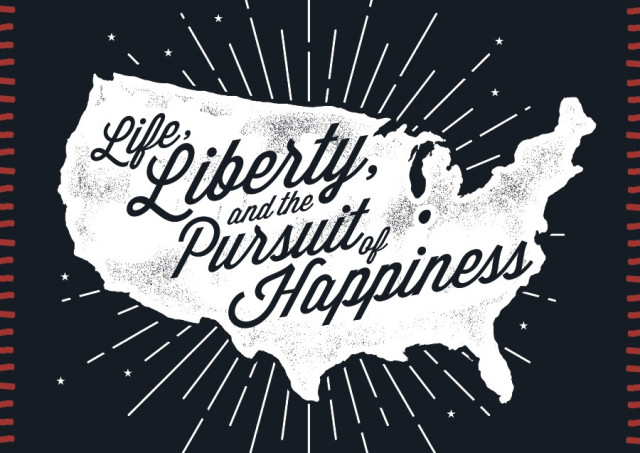

 Look, this ain’t hard. Once a person abandons the solid moral foundation of the Ten Commandments, that person will have complete and continual instability in his life.
Look, this ain’t hard. Once a person abandons the solid moral foundation of the Ten Commandments, that person will have complete and continual instability in his life.





